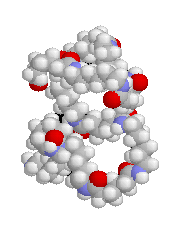Polymers in Building: Stronger, Lighter, and Extra Resilient
Polymers in Building: Stronger, Lighter, and Extra Resilient
Blog Article
Checking Out the Varied Applications and Advantages of Polymers in Different Industries
Polymers, with their diverse variety of homes and capabilities, have become essential in numerous sectors, each gaining unique take advantage of their application. Polymers. From boosting safety and security and performance in the auto field to revolutionizing medical gadgets in the medical care sector, polymers play a crucial role. In addition, their environment-friendly nature is modifying the landscape of sustainability methods. As we delve right into the midsts of polymers in electronic devices, we reveal sophisticated innovations, while their architectural honesty changes the world of construction and framework. The prevalent impact of polymers across industries is a testimony to their convenience and flexibility, forming the future of plenty of fields.
Automotive Market Applications
Polymers play a pivotal role in enhancing the efficiency and sturdiness of numerous components within the automobile field. One popular use of polymers in the automotive market is in the manufacturing of light-weight components.

Health Care Industry Advantages
In different medical care applications, the benefits of using polymers are commonly recognized for their diverse array of helpful residential or commercial properties. Polymers play a crucial role in the medical care industry due to their adaptability, biocompatibility, and cost-effectiveness. Among the main benefits of polymers in healthcare is their capacity to be customized to details requirements, such as adaptability, toughness, and biodegradability, making them ideal for a vast array of medical applications.
Polymer-based materials are extensively used in clinical gadgets, such as catheters, implants, prosthetics, and medicine shipment systems, as a result of their biocompatibility and capacity to mimic all-natural tissues. These materials can decrease the threat of sensitive reactions or denials, enhancing individual security and outcomes. Furthermore, polymers are lightweight, making them suitable for wearable clinical tools and ensuring person comfort.
Moreover, polymers enable the advancement of cutting-edge therapy techniques, such as hydrogels for tissue engineering and nanocomposites for targeted medicine delivery. Their convenience of handling and sterilization makes them important for keeping high criteria of hygiene in healthcare setups. In general, the varied benefits of polymers add substantially to advancements in medical technology and client treatment.
Environmental Benefits of Polymers

Furthermore, polymers can add to energy savings because of their light-weight nature. In markets such as transport, lightweight polymer materials can aid decrease fuel usage and greenhouse gas discharges. In addition, polymers can allow the growth of energy-efficient items such as insulation materials that boost energy conservation in structures.
Additionally, polymers play an important function in lowering water pollution. For instance, using polymer-based filtering systems can efficiently eliminate pollutants and contaminants from wastewater, protecting water resources and environments. Generally, the environmental benefits of polymers make them valuable assets in advertising sustainability and environment-friendly practices throughout various industries.
Polymers in Electronic Devices and Modern Technology
Taking into consideration the increasing demand for ingenious and lasting remedies in contemporary industries, the assimilation of innovative polymer innovations in the realm of electronics and technology has actually become a crucial technique for driving effectiveness and performance. Polymers have actually changed Bonuses the electronic devices sector by allowing the manufacturing of lighter, more adaptable, and long lasting electronic devices. From smartphones to medical devices, polymers play a critical function in improving item design and capability.
One substantial advantage of polymers browse around this site in electronics is their shielding properties, which help secure delicate electronic components from environmental variables and electric disturbance. Additionally, polymers are vital in the growth of flexible displays, wearable technology, and published electronics, providing countless possibilities for producing clever and interconnected tools.
Moreover, making use of polymers in electronic packaging has caused advancements in miniaturization and thermal monitoring, enhancing the overall performance and integrity of electronic systems. As modern technology remains to develop, the adaptability and flexibility of polymers will unquestionably drive better development in the electronic devices industry, forming the future of innovation.
Duty of Polymers in Building and Facilities
Polymers supply various advantages in the building market due to their versatility, sturdiness, and cost-effectiveness. One crucial duty of polymers in building is their usage in layers and sealants, supplying protection against environmental variables such as wetness, UV radiation, and deterioration.
In addition, polymers play a critical function in lasting building and construction practices by enabling the advancement of energy-efficient structures. Protecting materials made from polymers help control indoor temperatures, reducing the demand for heating and cooling systems and ultimately lowering power consumption Visit This Link - Polymers.
Conclusion
In final thought, polymers play an essential duty in different industries such as automobile, health care, ecological, electronics, and construction. From improving gas effectiveness in cars to improving clinical tools, polymers provide countless advantages.
Report this page